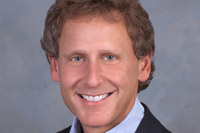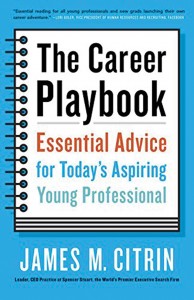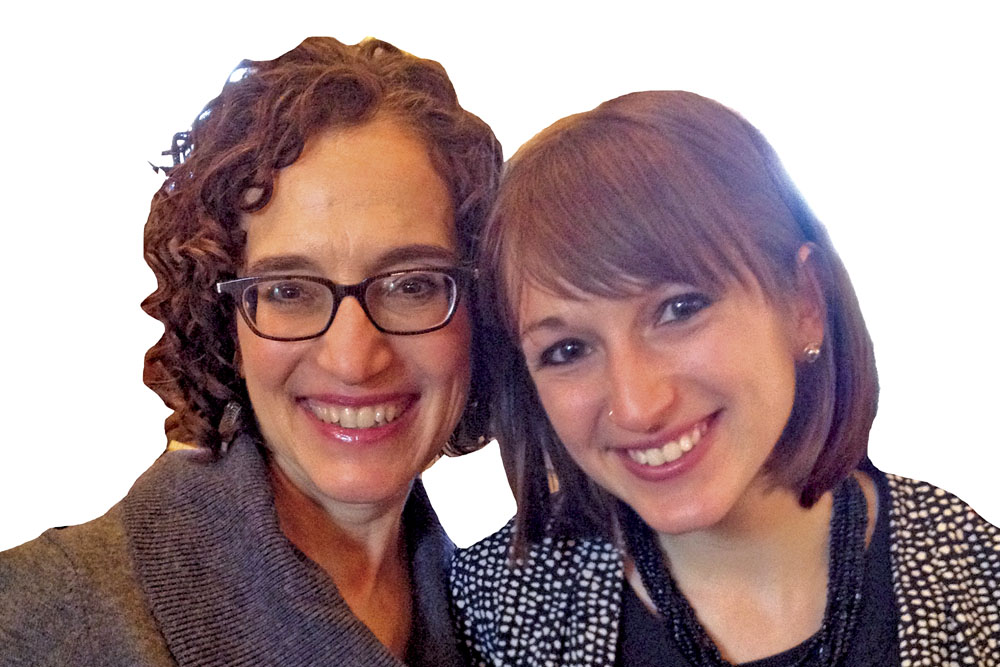CAREER ADVICE FROM A TOP RECRUITER

 Don’t you wish that someone with absolutely tons of experience in analyzing successful careers as well as career mistakes would share coffee and advice with you? Maybe you can’t have the coffee, but Jim Citrin P’12, P’14, a Wesleyan trustee, gives you his advice in his highly readable new book, The Career Playbook: Essential Advice for Today’s Aspiring Young Professional. Much of what he has to say is relevant to anyone in any career, and he has spoken to alumni audiences across the country, as well as on campus.
Don’t you wish that someone with absolutely tons of experience in analyzing successful careers as well as career mistakes would share coffee and advice with you? Maybe you can’t have the coffee, but Jim Citrin P’12, P’14, a Wesleyan trustee, gives you his advice in his highly readable new book, The Career Playbook: Essential Advice for Today’s Aspiring Young Professional. Much of what he has to say is relevant to anyone in any career, and he has spoken to alumni audiences across the country, as well as on campus.
Citrin is the leader of Spencer Stuart’s CEO Practice and a member of the firm’s worldwide board of directors. He has led recruitment of more than 600 executives of large corporations, early-stage companies, educational institutions, and not-for-profits. He has conducted thousands of interviews over the last 35 years. Below is a taste of his wisdom.
1. A hard balance. Job satisfaction, money, and lifestyle are almost always at odds with one another, and this is especially true as you start your career. The good news is that you can achieve high marks in all three areas; the bad news is that you can’t necessarily have them all now.
• The more you consciously think about each of the three factors and decide which is most important to you, the better you will weather each career phase and make the right decisions about your future.
2. Big payday warning. Two words of caution if you’re planning to go into a high-paying sector.
• First, your job might make you somewhat unhappy, or even miserable, in part because you’ll probably be working in a highly competitive environment and in part because of the effects the job will have on your life outside work.
• Second, what may seem like a fail-safe profession today could be disrupted in the future by technology, outsourcing, a change in the marketplace, or a flood of new graduates flocking to your field.
3. It’s about friends. When it comes to finding a job and discovering ways to make progress in your career, there is simply no substitute for relationships and networks. The number one factor leading to happiness, according to our surveys and interviews, is the quality of your relationships.
• One hundred percent of the business leaders and 97 percent of the young professionals ranked relationships above their health, their personal impact, and their compensation in importance.
• You can build professional relationships in the same way that you make personal friends, by building trust through shared experience, commitment, honesty, and opening up your personal life (to an appropriate degree).
• All business relationships are also personal relationships.
5. Keep on networking.
• Seek to help others. The more that you can start thinking about how to help those you meet, the more effective and rewarding relationship building and, yes, networking will be.
6. E-mail etiquette. It’s probably not an overstatement to say that e-mail communication has become as important as—or even more important than—your skill at writing cover letters.
• Be incredibly responsive. Even if an executive takes a few days to respond, or doesn’t respond at all, it doesn’t mean he or she won’t be impressed if you respond immediately.
• Focus on the next step. The goal of your e-mail is to get you to the next step, whether that is a phone call, a courtesy interview, or lunch.
• Pay attention to the subject line. Your subject line should be enticing and express who you are and what you are writing about.
• When it comes to salutations, err on the side of formality. Continue using Mr. or Ms. for at least the first two or three exchanges.
• Keep it short. Most people don’t have the time or attention span to read an e-mail that’s longer than ten lines.
7. Your liberal arts degree. The reality is that if you’re studying the humanities, you will need to work harder, be more creative, and draw on your unique skills and strengths to land an ideal job.
• Know your skills and what you want to do. Be prepared to connect the strengths you demonstrated in school to a skill that employers will value.
• Become skilled in tomorrow’s disciplines. If you supplement your humanities studies with work in tech and engineering disciplines, it will put you on even footing with graduates from more preprofessional programs.
• Meet with career services and alumni relations. Solicit their advice early and often in your undergraduate days.
• Think globally. Graduates can position themselves for the long term if they’re willing to sweat it out in a frontier economy while their friends are living it up in New York City, San Francisco, and London.
8. Art of the interview. When you’re looking for a job that will launch your career, the job interview is your moment of truth.
• Don’t just answer questions, tell a narrative. The best way to ace an interview is to tell a story by connecting your answers to one another in a way that gives the interviewer a memorable, three-dimensional picture of who you are.
• Avoid the trap in “Do you have any questions for me?” This is not the moment to relax or think that the interviewer is just being polite or trying to wrap up the meeting. This is your chance to show that you’ve done your homework on the company and the position and that you’re a savvy candidate who actually knows that this is one of the most important parts of the interview.
• Clarity gets the job. You probably won’t be asked to give an overview of a company’s strategic positioning when you’re interviewing for an entry-level job. But if you can demonstrate to your interviewer that you are a clear thinker who expresses yourself coherently, you will put yourself ahead of the crowd.
9. A Fast Start. Be positive and enthusiastic. Create energy in meetings and off-the-cuff conversations; don’t be a downer. Jump on any chance you get to learn a new skill or process, and maintain an abundance mentality, where the more you can help others, the better it is for you.
• Be effective in all your communications. One form of communication that often gets overlooks is nonverbal communication. The way you look and carry yourself has a disproportionate influence on how others perceive you, especially in your early days on the job.
• Be visible. Be one of the first people to arrive every morning and one of the last to leave. Introduce yourself—not once, not twice, but as many times as it takes for people to actually remember your name. Be polite to everyone you interact with—especially your office’s executive assistants and reception.
• Soak up your company’s culture. Once you’re employed by [a] company it’s time to begin paying attention to how things really work around there.
• Provide high-quality work … even on menial tasks. Many young professionals enter the workplace ready to save the world, only to quickly become disillusioned when they find themselves sitting in a cubicle in front of a computer screen. But even in the most menial roles, it’s worth remembering that distinctive performance is and will always be your ticket to play.
10. Strategies for success—throughout your career.
Success is achieved by making those around you successful. Contrary to what you may believe, most highly successful business leaders are not overly self-centered people. In my research and professional experience, the most successful top executives spend as much time thinking about the success of their company and their direct reports as they spend thinking about their own success.
• Don’t quit. Of the one thousand recruits who enter the rigorous six-month-long [Navy] SEAL training course each year, only 200 to 250 complete it. For recruits who didn’t make it to the end of the SEAL training, the reason was not that they didn’t have the skills to perform well enough. As it turned out, those who failed to complete the program did so because they decided to drop out. Most candidates quit over breakfast or lunch, at a time when they were anticipating how difficult their day would be. Even if you don’t have ambitions of becoming a SEAL, the message is clear. You have the power to make it through challenging, stressful times—you just need to decide that you can.
• Play to your strengths. Another prerequisite, both for job performance and for fulfillment in life, is to work in a role that you’re good at.
• Be a learning animal. Don’t just ask first-level questions. Follow up on the answers you get. Probe the whys and hows, and try to go two to three levels deeper. Talk to people who have different perspectives than you do. Practice active listening and project an openness to new information—even if it’s bad news.
“Happiness is the experience of both pleasure and purpose over time.”
—Paul Dolan (a behavioral scientist at the London School of Economics)
I love this definition. On the one hand, it captures the sense of achievement that you get from challenging but meaningful endeavors—projects that move things forward, breakthrough ideas and products, deals that satisfy clients, and work that helps those in need. But Dolan’s definition of happiness also encompasses a wide range of activities that bring you joy, even if their outcomes don’t always produce measurable results—activities such as listening to music, creating art, watching films, playing sports, enjoying the great outdoors, and spending time with the people you love.

